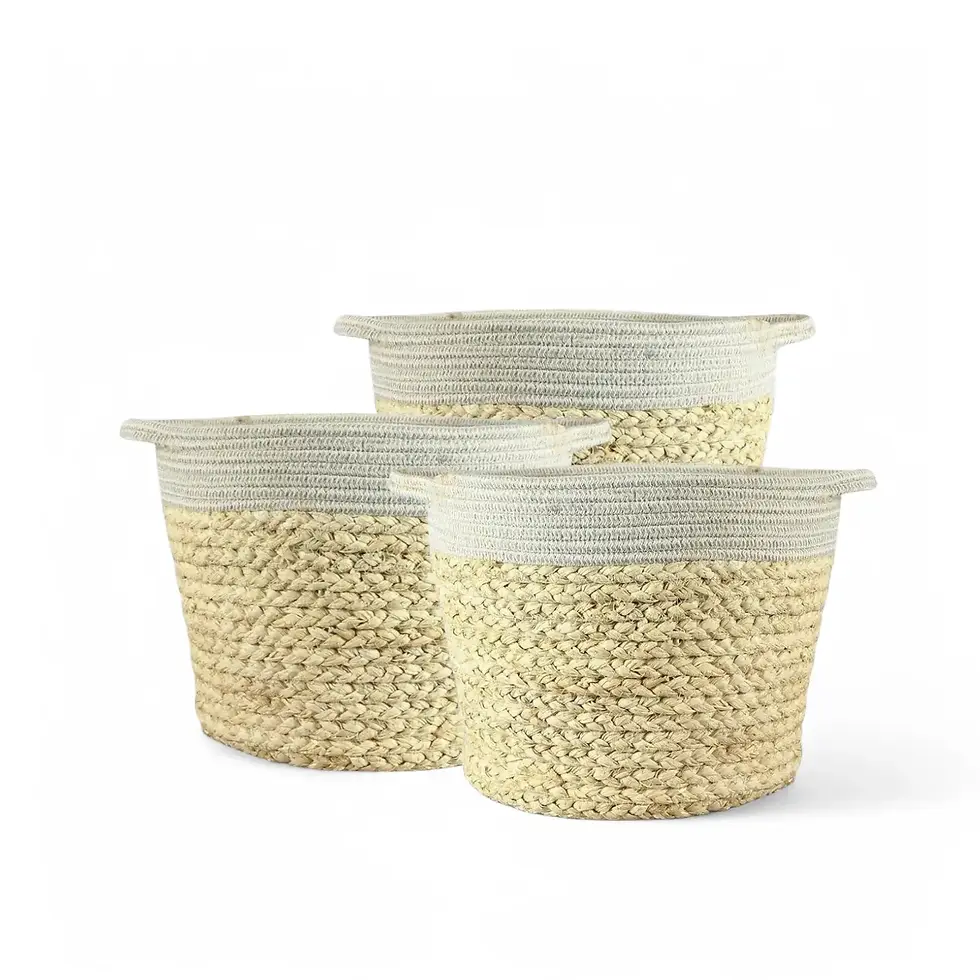Hoya carnosa 'Tricolor': Complete Care and Fascinating Details
Hoya carnosa 'Tricolor' is a remarkable houseplant that captivates with its tri-colored leaves. A perfect blend of green, creamy white, and blush pink adds a vibrant touch to indoor spaces. Its versatile growth habit makes it equally suited for cascading in hanging planters or climbing a trellis. Loved by European plant enthusiasts, this tropical plant combines beauty with low maintenance.
Standout Features of Hoya carnosa 'Tricolor'
- Dynamic Foliage: Glossy, oval leaves in green, white, and pink create a vibrant display. Young leaves often show the brightest pink, providing a fresh pop of color.
- Adaptable Growth: Thrives as a trailing plant in hanging baskets or as a climber on trellises, reaching up to 2-3 meters indoors.
- Fragrant Blooms: Clusters of star-shaped flowers emit a sweet, honey-like aroma, enhancing its appeal when blooming conditions are met.
Key Details About Hoya carnosa 'Tricolor'
- Native Habitat: Found in the rainforests of Southeast Asia, this plant thrives in warm, humid conditions with filtered sunlight.
- Growth Characteristics: Moderately fast-growing with a climbing or trailing habit. Ideal for creating vertical greenery or accentuating shelves.
- Toxicity: Keep it out of reach of pets, ingestion may cause stomach upset.
- Perennial Lifespan: This hardy plant offers year-round beauty and can bloom repeatedly under ideal conditions.
Comprehensive Care Guide for Hoya carnosa 'Tricolor'
- Light Requirements: Prefers bright, indirect sunlight. Too little light results in slower growth and reduced variegation, while direct sunlight may scorch its leaves. Use grow lights for darker interiors.
- Watering Tips: Allow soil to dry out between waterings. Overwatering leads to root rot, while underwatering can cause wrinkling. Ensure pots have proper drainage.
- Humidity Levels: Thrives in 50-60% humidity but adapts to standard indoor levels. Boost humidity with a humidifier for optimal flowering.
- Soil Needs: Use a well-draining mix, such as orchid bark, cactus soil, and perlite. Terracotta pots promote healthy airflow around the roots.
- Repotting Tips: Repot every 2-3 years or when root-bound. Choose slightly larger pots to maintain manageable growth.
- Fertilization: Apply a balanced liquid fertilizer monthly during the growing season (spring to fall). Semi-hydroponic setups benefit from tailored nutrient solutions.
- Temperature Preferences: Best kept at 18-26°C. Avoid exposing the plant to drafts or sudden temperature fluctuations.
- Pruning Tips: Trim long, leggy stems to encourage bushier growth. Avoid cutting flower peduncles, as these often rebloom.
- Propagation Methods: Propagate using stem cuttings in water or soil. Spring and summer are ideal seasons for successful propagation.
- Placement Advice: Place in brightly lit areas, away from cold drafts or harsh sunlight. Hanging baskets emphasize its trailing beauty.
- Hydroponic Adaptation: This plant thrives in hydroponic systems. Ensure lightweight containers and change nutrient solutions regularly for optimal growth.
Common Issues with Hoya carnosa 'Tricolor' and Their Solutions
- Pests: Mealybugs, spider mites, and aphids can infest this plant. Inspect regularly and treat with neem oil, or use beneficial insects or insecticidal soap if needed.
- Yellow Leaves: Often caused by overwatering. Adjust watering habits and use pots with drainage holes.
- Blooming Problems: Ensure the plant gets bright, indirect light and remains slightly root-bound. Patience is key, as Hoyas may take years to bloom.
- Root Rot: Prevent by using well-draining soil and allowing the potting mix to dry out between waterings.
- Leaf Browning or Curling: May indicate low humidity or inconsistent care. Improve conditions for healthier foliage.
- Fungal Issues: Overly wet environments may lead to fungal growth. Reduce humidity and prune affected areas promptly.
Unique Insights About Hoya carnosa 'Tricolor'
- Its leaves’ waxy appearance often makes it seem like an artificial plant, yet it’s a thriving, low-maintenance beauty.
- As an epiphyte, this plant requires minimal soil, mimicking its natural rainforest environment.
- In some cultures, Hoyas are symbols of protection and good fortune, making them meaningful additions to homes.
Etymology and History
The genus ‘Hoya’ is named after Thomas Hoy, a British gardener. The term ‘carnosa’ highlights the plant’s fleshy, succulent-like leaves, while ‘Tricolor’ describes its distinctive foliage. Native to tropical forests, it has been cherished as an ornamental plant for centuries.
Frequently Asked Questions about Hoya carnosa 'Tricolor'
- How can I promote faster growth? Ensure consistent bright light, adequate humidity, and regular fertilization during active growth periods.
- What’s the best way to train its vines? Use plant ties to gently guide stems along a trellis or support, shaping growth without causing damage.
- Can Hoya carnosa 'Tricolor' tolerate low light? While it survives in lower light, its growth and variegation may diminish. Supplement lighting for best results.
- Why isn’t Hoya carnosa 'Tricolor' blooming? Blooming requires patience. Bright, indirect light and a slightly root-bound condition encourage flower development.
Order Hoya carnosa 'Tricolor' Today!
Bring the timeless elegance of Hoya carnosa 'Tricolor' to your indoor garden. Its lush colors and easy-care nature make it the perfect choice. Click now to make this vibrant beauty yours!
Hoya carnosa 'Tricolor'
Hoya carnosa 'Tricolor' comes in following sizes:
XS – is approximately 10 cm tall/ long and comes in a ⌀ 6 cm pot.
S – is approximately 15 cm tall/ long and comes in a ⌀ 9 cm pot.
M – is approximately 20 cm tall/ long and comes in a ⌀ 12 cm pot.
L – is approximately 20 cm tall/ long and comes in a ⌀ 28cm hanging pot.

























































